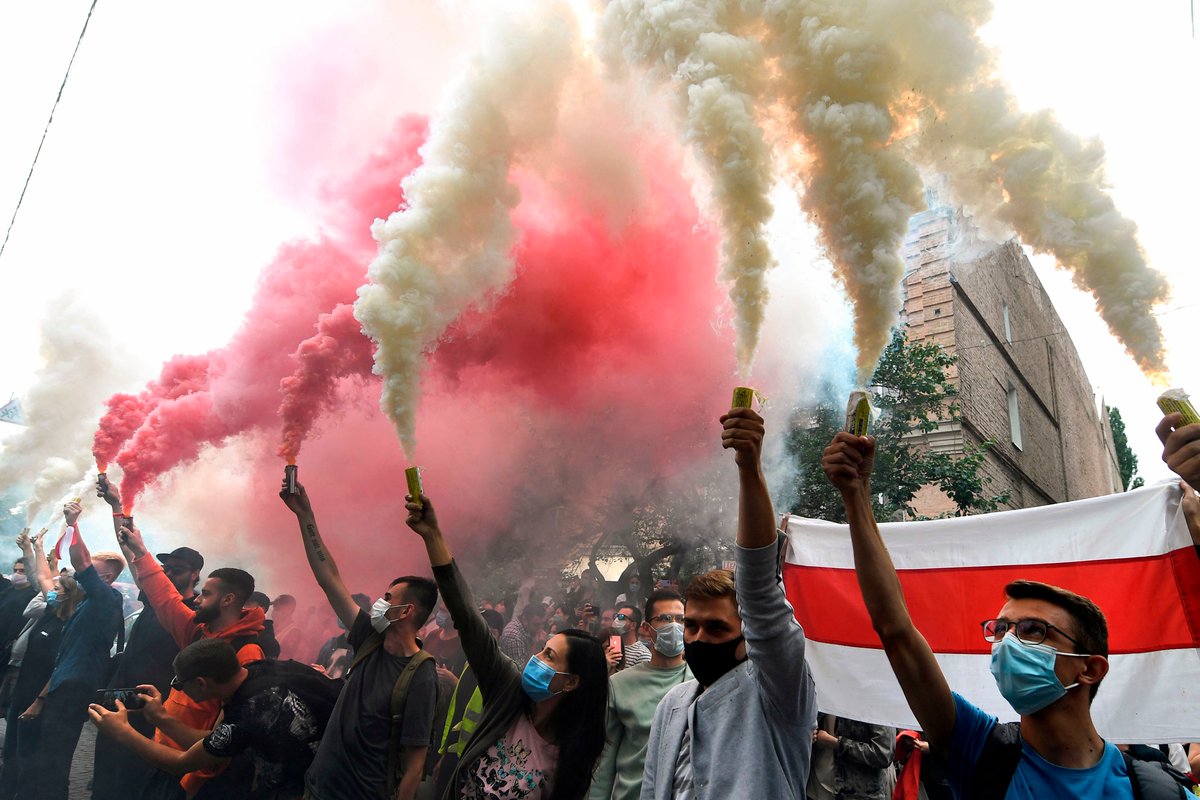
The global Summit for Democracy, led by U.S. President Joe Biden, has begun. What are the challenges of fighting against autocracies worldwide? Is the United States equipped to lead this matter? We asked our contributors to weigh in. [Thread]
📸 | Chip Somodevilla/Getty Images
📸 | Chip Somodevilla/Getty Images

Democracy in its current form may not actually be giving people power. @landemore argues we should build new models of democratic decision-making and nudge the old ones aside.
“That, I believe, is our best hope for renewing democracy.”
foreignpolicy.com/2021/12/07/bid…
“That, I believe, is our best hope for renewing democracy.”
foreignpolicy.com/2021/12/07/bid…
Having a clearer idea of what an authentic democracy should look like can guide institutional reform in ways that are compatible with current power structures and prevailing ways of thinking, @landemore writes.
foreignpolicy.com/2021/12/07/bid…
📸 | Terri Lawrence/istock Photo
foreignpolicy.com/2021/12/07/bid…
📸 | Terri Lawrence/istock Photo

.@ceherrold and Aseem Prakash suggest a humble approach, in which the United States “creates a platform for dialogue about how to shift power to citizens rather than prescribing democracy templates.”
They map out three key reforms:foreignpolicy.com/2021/12/08/bid…
They map out three key reforms:foreignpolicy.com/2021/12/08/bid…
Recognizing that locally generated solutions are more culturally resonant and politically feasible than U.S. programs should guide the Biden administration’s approach, @ceherrold and Prakash write.
foreignpolicy.com/2021/12/08/bid…
📸 | Olivier Douliery/AFP via Getty Images
foreignpolicy.com/2021/12/08/bid…
📸 | Olivier Douliery/AFP via Getty Images

This summit doesn’t appear to have clear objectives, argues FP columnist @stephenWalt. With issues of democracy within its own borders, the United States is not in the best position to lead this global effort right now.
buff.ly/3oAwKCv
buff.ly/3oAwKCv
.@ChrisSabatini and @RyanBergPhD argue this is the moment to spearhead an anti-authoritarianism playbook. For it to work, leaders “must be prepared to scrutinize their own domestic politics and societies just as much as they do those of autocrats.”
foreignpolicy.com/2021/12/07/bid…
foreignpolicy.com/2021/12/07/bid…
The United States was recently added to the International IDEA’s list of “backsliding” democracies. So, to truly lead the global democracy effort, the country must strengthen institutions of accountability at home—especially as they pertain to warfare.
foreignpolicy.com/2021/12/08/dem…
foreignpolicy.com/2021/12/08/dem…
Will the #SummitforDemocracy actually change anything? Follow this topic, and all of our latest coverage, by subscribing to our daily Morning Brief newsletter:
foreignpolicy.com/category/morni…
foreignpolicy.com/category/morni…

• • •
Missing some Tweet in this thread? You can try to
force a refresh





